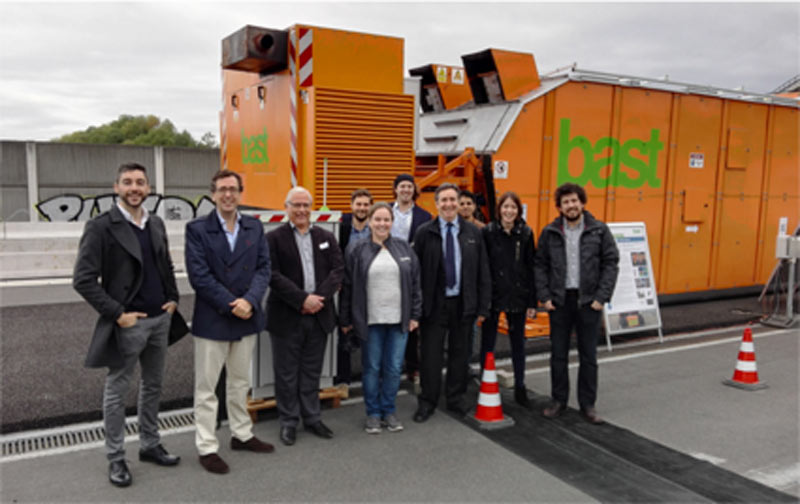The HEALROAD Workshop took place on 26 October in Germany within the annual INFRAVATION conference.
The consortium presented results to an audience of around 50 experts. The discussion focussed on the scientific and technical actions developed during two main steps:
- Laboratory research: mixes and induction energy
- Full scale demonstrator: asphalt production, construction and accelerated pavement testing
The lab tests focussed on key parameters to improve the self-healing technique already created by the University of Delft. Concretely, experts presented latest findings on how the healing capacity for the HEALROAD asphalt mix is affected by:
(a) Heating method: induction heating resulted faster and more energy efficient.
(b) Type of metal particles: economic and environmental impact can be reduced through the use of recycled metal particles. Volumetric and mechanical properties change slightly for the metal contents used. The consortium has prepared recommendations for the use of different types of fibres in different pavement layers.
(c) Type of bitumen: practically there is no effect on healing capacity for the types of bitumen with pen grade between 40 and 100.
(d) Aging and RAP content: both effectiveness and efficiency of healing process are slightly reduced in case of increase ageing and RAP materials.
(e) Air voids content: porous mixes produce higher fatigue life extension but their optimum number of cycles for healing treatment is also lower. Dense mixes are difficult to heal and it is possible to damage through an excessive thermal expansion of bitumen through an internal pore network with low flow capacity
It was exposed that in order to increase the healing performance of asphalt, the air voids content had to be also maximised. However, increases in this parameter produce detriments in mechanical performance. To obtain a balanced solution, it has been recommended to reduce the air voids content as much as possible (better mechanical performance) but without falling below the limit that ensures the percolation of air voids (13% for the studied material).
The full scale demonstrator considered the asphalt production and deployment of the test-section at the new duraBASt facility in Germany (construction, testing, healing).
The workshop finalised with a visit to the duraBASt demo area where participants joined a live demonstration with the devices deployed to prepare the pavement for the selfhealing process.
Agenda and presentations can be found here:
Agenda_Workshop
HEALROAD Workshop_26Oct_Germany
For further information, please contact Bastian Wacker: [email protected]


